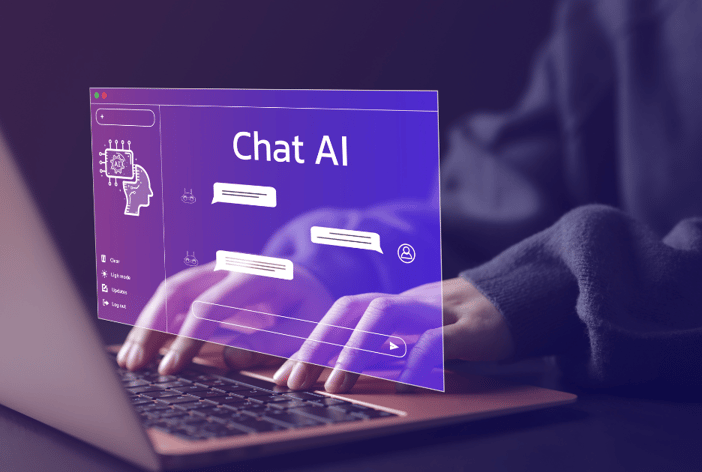NEWS & TREND
Content Marketing: how to leverage AI in your work
Optimize content without losing the human touch
In recent years, Artificial Intelligence (AI) has become an essential tool for marketers worldwide. With the increasing demand for high-quality content and the constant evolution of user behaviour, AI has secured a prominent place in the field of Content Marketing. But how can it be used effectively to maximise results without losing the human touch?
In this article, we will explore the main ways to integrate Artificial Intelligence into Content Marketing strategies, the benefits it brings, and potential risks to avoid.

1. Optimised content creation
One of the most interesting aspects of Artificial Intelligence is its ability to analyse large-scale data and identify trends. AI tools can suggest keywords, titles, and even topics to cover based on market analysis and user behaviour. By using software like SEMrush or SurferSEO, it is possible to produce content optimised for search engines and enhance organic SEO. AI can also assist in generating drafts of articles, writing product descriptions, or creating short posts for social media. However, it is important to remember that AI cannot yet replicate human creativity and authenticity: generated content must always be reviewed and edited by a professional to ensure quality and an appropriate tone of voice. For example, relying solely on AI for creating innovative and original graphics can be limiting both in terms of quality and emotional depth, as well as coherence with the relevant brand.
2. Content Personalisation
One of the main objectives of Content Marketing is to create personalised experiences for customers. Thanks to AI, this has become easier and more precise than ever. Algorithms can analyse large amounts of data related to user behaviour, tracking preferences, purchasing habits, and online interactions. In the past, Machine Learning was the primary method used to achieve advanced results in analysis and prediction. Today, however, it is the integration of Machine Learning with Artificial Intelligence that delivers even more sophisticated outcomes. For example, Amazon uses a combination of Machine Learning and AI to provide personalised recommendations to users, based on what they have previously bought or viewed. A proper use of AI in this area leads to higher conversion rates and increased customer loyalty.
3. Content Marketing Automation
Automation is one of the areas where AI has proven its greatest value. In addition to content creation and distribution, AI tools enable the automation of much of the Content Marketing process, saving time and resources. Here are some common applications:
- Automated Email marketing: Platforms like Mailchimp or ActiveCampaign use AI to personalise messages, send emails at the optimal time, and tailor content based on user interaction;
- Managing Social Media: Tools like Buffer or Hootsuite use AI to schedule and optimise post publishing, suggest the best times to post, and monitor engagement in real-time;
- Content curation: AI can help gather and suggest relevant content to share with your audience, thus maintaining a constant flow of communication without having to create everything from scratch.
4. Analysis and Performance Measurement
AI also provides the ability to conduct advanced analysis of content performance. With tools like Google Analytics, you can access detailed data on how your content is viewed, clicked, and shared. Many AI platforms can even go beyond traditional metrics, identifying hidden trends or predicting future user behaviour. This type of predictive analysis is extremely useful for adapting your Content Marketing strategies, anticipating market changes, and responding more quickly to customer needs.
AI Risks and Limitations
While AI offers enormous benefits, there are some risks and limitations to consider. One of the biggest dangers is over-reliance on automation. AI can speed up the creative process, but it cannot (yet) replace the human ability to deeply understand emotions and cultural nuances. Moreover, AI tools rely on past data and predefined algorithms, so they may lack originality and come across as mechanical or impersonal. It’s essential to maintain a balance between the use of Artificial Intelligence and human intervention to ensure that content remains authentic, creative, and truly valuable to the audience.
Artificial Intelligence is a powerful tool in the field of Content Marketing, capable of boosting productivity, personalising the user experience, and optimising content effectiveness. However, like any tool, it must be used wisely. Striking the right balance between automation and human creativity is key to effectively harnessing AI in your work.



